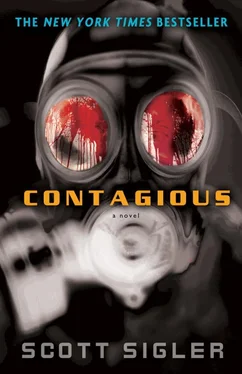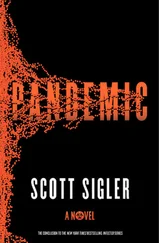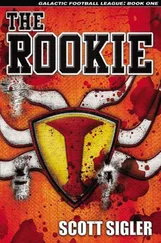Dew rubbed his face with both hands, then picked up the handset again. The explosion caused by the Strike Eagles’ bomb run would be huge, probably even register on seismographs. Covering up such a thing would require spin, obfuscation and lies. And for something like that, there was no one in the world better than Murray Longworth.
The Situation Room buzzed with conversation. Images of the Marinesco gate lit up most of the flat-panel monitors.
To Murray there was something inherently defeating about that image. Via satellite, drone and surveillance planes, they had watched Ogden’s men attack the gate in South Bloomingville. They had watched it catch fire, watched it burn and crumble, and yet here was a second gate that looked almost exactly the same.
Other monitors showed digital maps of Michigan; a green circle in the Upper Peninsula marking the gate, F-15 icons marking the position of Ogden’s Strike Eagles. Those planes were just edging over Lake Michigan—they had already covered half the distance from South Bloomingville to Marinesco.
One large monitor showed nothing but a countdown: fifteen minutes, twenty-three seconds and counting. When that hit zero, the Strike Eagles would drop their payloads… unless the president called off the attack.
Gutierrez had given up on trying to look presidential. Small beads of sweat dotted his forehead. Despite appearances, though, he hadn’t given in to the stress. He asked intelligent questions, he demanded intelligent answers and he had the Joint Chiefs jumping at his commands.
“Goddamit, gentlemen,” Gutierrez said. “You can not tell me we have no other forces that can reach Marinesco and attack that gate in the next fifteen minutes.”
“That’s exactly what we’re telling you,” said General Hamilton Barnes. As Chairman of the Joint Chiefs, delivery of most military-related bad news fell to him, although Monty Cooper, the marines’ top man, wasn’t afraid to enter into the conversation uninvited.
“Mister President, sir,” Cooper said. “We are in the middle of fighting two wars and a police action on foreign soil. Even if our troops were not badly depleted because of that, there is no way we could put a company-size element into play in Michigan’s Upper Peninsula in less than an hour. The fastest-responding unit is the Division Ready Force, from the Eighty-second Airborne. First-response elements of the DRF can be anywhere in the world in eighteen hours, anywhere in the United States in probably seven, and you have no idea how fast that is in military terms. With all due respect, sir, we can’t just wave a fucking magic wand and make troops appear.”
Barnes turned toward Cooper, obviously to lay down a fast rebuke.
“Save it, General Barnes,” Gutierrez said. “It takes more than a little language to offend me. But don’t do it a second time, General Cooper.”
“Sir,” Cooper said.
Gutierrez’s eyes flicked up to the clock. Murray looked as well. Thirteen minutes, fifty-four seconds.
“How long until Company X reaches the gate?” Gutierrez asked.
“Their Ospreys just took off from South Bloomingville,” Barnes said. “A little under two hours until they can attack. The Apaches are over an hour away.”
Gutierrez gave the table one quick, frustrated fist-pound.
“I don’t understand,” Vanessa said. “How can a colonel have the authority to launch a bombing attack like this? Doesn’t he need to clear it with at least the Joint Chiefs?”
General Barnes answered. “Ogden is the battlefield commander. He has the authority to use any elements at his disposal to achieve the objectives set before him. He doesn’t need approval to deploy resources already under his command.”
“This is ridiculous,” Vanessa said. “He doesn’t need approval for anything?”
“President Hutchins set it up this way for a reason,” Murray said. “In the time it’s taken us to get the information and begin a discussion about what to do, the jets are already halfway to the target. Ogden can order Options One through Three without oversight. Only Option Number Four requires presidential approval.”
“And what, exactly, is Option Number Four?”
“The big whammy,” General Cooper said. “Option Four is a tactical nuke.”
“A nuke ?” Vanessa said. “On American soil? Are you kidding me?”
“A tactical nuke, ma’am,” Murray said. “We have three B61 warheads available. They’re variable-yield warheads. We can dial the blast for anything from point-three megatons to one hundred and seventy.”
“Murray,” Gutierrez said, “how could Hutchins even consider dropping a nuke?”
“We have to acknowledge the possibility that we won’t see a construct in time,” Murray said. “If that happens, it will open up and deliver that initial beachhead force. We don’t know what kind of weaponry or technology we’ll be dealing with at that point. We have to have this level of response in order to take out both the construct and the enemy force.”
“This is insane,” Vanessa said.
“It was approved by President Hutchins,” Murray said.
“ Hutchins isn’t the president anymore,” Vanessa said. “John Gutierrez is.”
Murray nodded. “And the orders of a former president stand until the current president gives new orders.”
Vanessa turned to face Gutierrez. “So give a new order, Mister President,” she said. “Call this whole thing off.”
Gutierrez sat back in his chair. “These conventional bombs Ogden ordered, what kind of hardware are we talking about?”
General Luis Monroe, the air force’s top man, spoke for the first time. “The GBU-31, version three, is a two-thousand-pound bomb. It’s a bunker-buster, biggest thing we’ve got short of a nuke. The blast will kill everything within a hundred and ten feet of the point of impact and will cause casualties at over a hundred yards. Total blast radius is about four thousand feet.”
“A radius of four thousand feet?” Vanessa said. “But… that’s a diameter of a mile and a half.”
Monroe nodded. “They’ve worked very well in Iraq and Iran. If it was daylight, the smoke cloud would be visible from twenty miles. All the surrounding towns will feel the impact, probably think it’s a minor tremor.”
“How the hell are we going to keep that secret?” Vanessa asked.
“I have a prepared cover story,” Murray said. “This is a very rural area, remote, so it’s feasible a terrorist cell set up a bomb-building facility. We learned about it, determined it was possible they were building a dirty bomb, so we sent in the F-15Es to take it out. A dirty bomb is a radiation threat, so we can lock down a large area while we investigate. Everyone wins—intelligence got the info, executive branch reacted definitively, military took out the terrorists.”
All eyes watched Murray. The Joint Chiefs weren’t surprised; they’d seen him do things like this before. Donald Martin didn’t look surprised, either. Working his way up to secretary of defense, he’d undoubtedly seen such lies. Gutierrez, Vanessa and Tom Maskill, however, looked astonished.
“Domestic or international terrorists?” Gutierrez asked.
Murray shrugged. “Whichever you prefer, Mister President. I have an extensive background developed for a white supremacist group, if you want to go that route. Or we can go Al-Qaeda. Your call.”
Gutierrez rubbed his hands together slowly as he thought.
“Let’s do the white supremacists,” he said. “I can’t have foreigners building a bomb on U. S. soil.”
“Yes, Mister President,” Murray said. “I can make that work.”
“John,” Vanessa said, astonished. “You’ve got to be kidding me. You’re going to let those jets drop bombs and lie to the American people about it?”
Читать дальше












